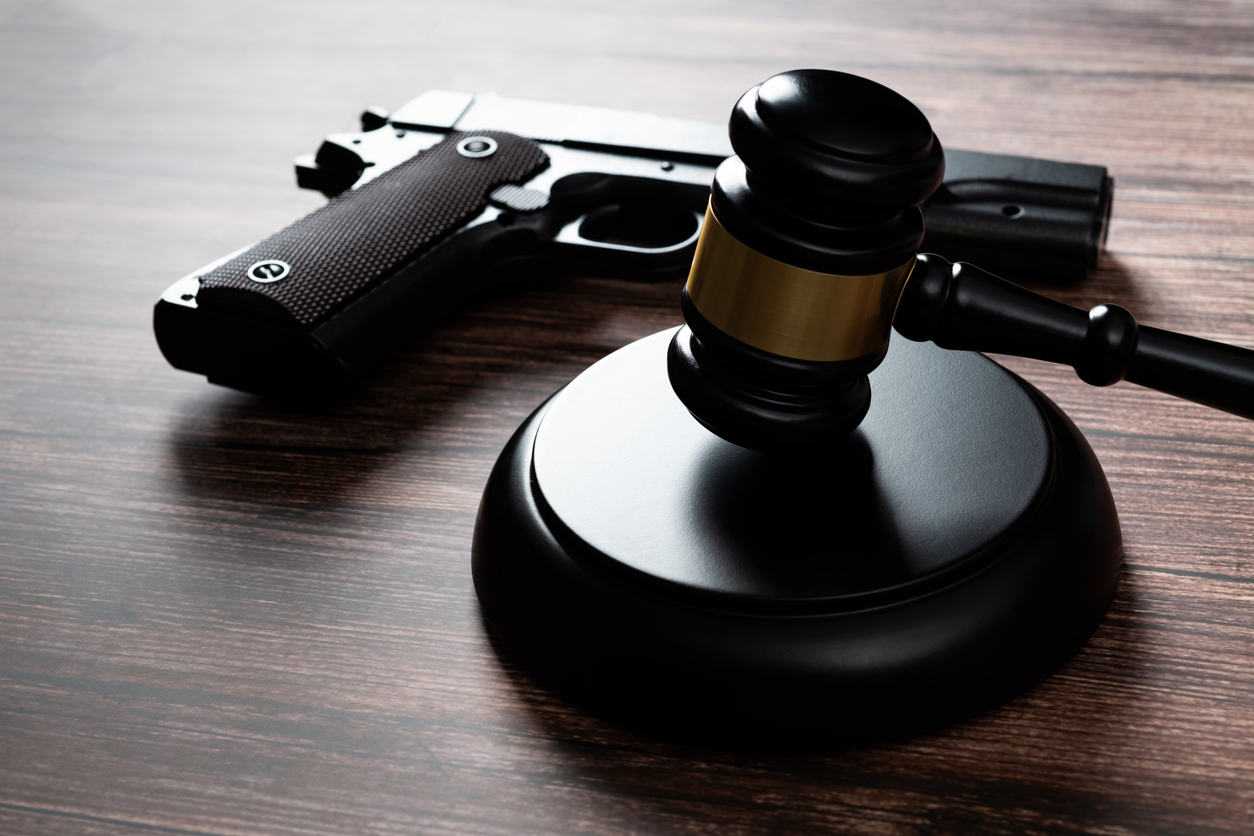If you’re facing federal firearm charges under 18 U.S.C. § 924(c) or § 922(g), you’re in serious legal territory. These are not simple possession charges—they often carry harsh prison sentences, even for first-time offenders. Federal prosecutors treat these offenses aggressively, and a conviction can mean years behind bars. That’s why it’s so important to take immediate action. At Federal Criminal Attorneys of Michigan, we’ll help you understand what’s at stake and build a defense aimed at protecting your freedom.
What Is a 924(c) Charge?
Section 924(c) of the federal code applies when someone is accused of using or carrying a firearm during and in relation to a drug trafficking offense or a violent crime. This isn’t just about having a gun—it’s about the timing and the connection between the weapon and the crime.
Penalties under 924(c) are severe and mandatory:
- 5 years for simple possession during the offense
- 7 years if the gun was brandished
- 10 years or more if the gun was fired
These sentences are stacked on top of any sentence for the underlying crime. That means if you’re convicted of a drug offense and also found guilty under 924(c), the firearm sentence comes after your time for the drug case—no early release, no parole.
Prosecutors often use 924(c) charges to pressure defendants into plea deals. We know how to challenge these tactics and push back.
What Is a 922(g) Charge?
Section 922(g) makes it a federal crime for certain people to possess a firearm. The law applies even if the gun was never used or displayed. Just having it can be enough. You’re considered prohibited from owning a gun under 922(g) if you fall into one of these categories:
- Convicted felons
- Individuals with prior domestic violence convictions
- People subject to a restraining order
- Users of controlled substances
- Individuals with certain mental health conditions
- Fugitives from justice
- Non-citizens unlawfully in the U.S.
- Dishonorably discharged members of the military
A 922(g) charge can come up in a lot of different situations, and the penalties can be serious, especially if the case is tied to other alleged crimes.
Defenses to 924(c) and 922(g) Charges
Federal firearm charges may sound ironclad, but there are ways to fight back. We take a close look at every detail to determine what defense strategies may apply to your case. Common defenses include:
- Lack of possession – The firearm wasn’t actually yours, or you didn’t know it was there.
- Unlawful search and seizure – If law enforcement violated your Fourth Amendment rights, the evidence may be thrown out.
- No connection to the crime – In 924(c) cases, the government must prove the gun was used during a drug trafficking offense or a crime of violence. That’s not always clear-cut.
- Wrong person charged – Sometimes, weapons are found in shared spaces, and officers make assumptions about ownership.
We work with investigators, examine every police report, and push prosecutors to prove every part of their case. If something doesn’t add up, we’ll find it.
Why Mandatory Minimums Matter
Federal firearm charges often come with mandatory minimum sentences. That means even if a judge thinks you deserve leniency, their hands may be tied. Under 924(c), the mandatory minimums are particularly harsh, and they get worse if there’s a prior conviction. A second 924(c) charge can bring 25 years, even if no one was hurt. That’s why early legal representation is so important. The sooner we get involved, the more options you may have to reduce or avoid these enhancements.
Contact Our Experienced Detroit Firearm Attorneys
Federal firearm charges are serious, but you don’t have to face them alone. At Federal Criminal Attorneys of Michigan, we’ve helped people across the state challenge charges under 924(c), 922(g), and other federal laws. If you’re being investigated or have already been charged, don’t wait. Call us today. We’ll stand up for your rights and give you the defense you deserve.
Federal Criminal Attorneys of Michigan, based in Detroit, also assists clients with criminal defense in Lansing, Grand Rapids, Ann Arbor, Flint, and all of Michigan.
